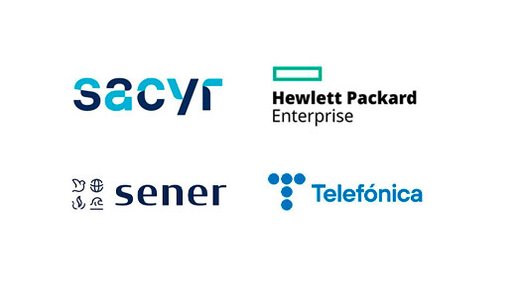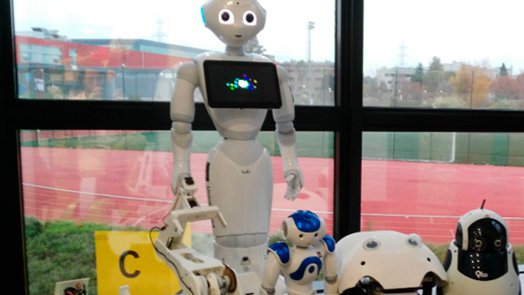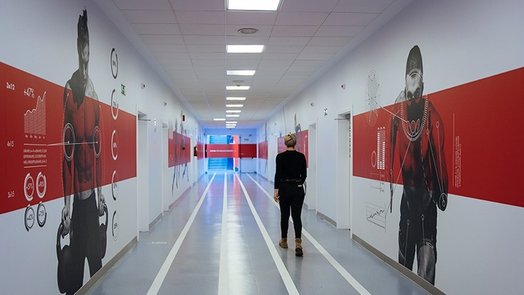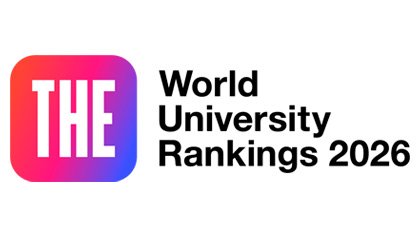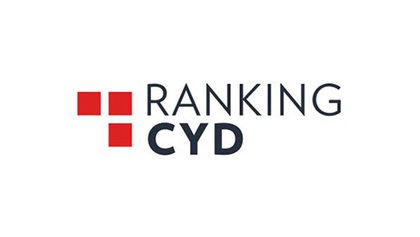-50% Discount on place reservation for 26/27 intake until February 28th!
Computer Engineering Degree: Study in the most advanced technological facilities
The Computer Engineering Degree offered by Universidad Europea spans over a duration of four years, encompassing 240 ECTS credits, meticulously tailored to address the evolving demands of the industry. At our Madrid campus, we've expanded the curriculum of the computer engineering undergraduate to include cutting-edge domains such as Computer Security, Mobile Robotics, Mobile Device Development, and Digital Transformation Management.
Central to our mission is the cultivation of adept computer engineers equipped to navigate the complexities of the field. To achieve this, we've devised an academic framework grounded in experiential learning. Through hands-on engagement with real-world scenarios and internships at esteemed Spanish companies, students learn computer engineering and acquire practical insights and invaluable industry exposure.
Official degree issued by Universidad Europea de Madrid
| Campus-based | Villaviciosa de Odón | 4 Years, 240 ECTS | Start: 14 sep. 2026 | School of Architecture, Engineering, Science and Computing - STEAM |
Study plan
Curriculum of the Degree in Computer Engineering
Specialise in computing and incorporate skills in intelligent systems, knowledge representation and human-computer interaction. 50% of the course’s ECTS credits are practical: you learn in workshops or laboratories, working on several subjects at the same time such as intelligent systems, artificial intelligence and user interface, just like the real work environment.
Study plan structure
Programa de estudios
FIRST YEAR
| Materia | ECTS | Tipo | Idioma de impartición |
|---|---|---|---|
| Mathematical Analysis | 6 | CORE | English (en) |
| Fundamentals of Computer Science | 6 | CORE | English (en) |
| Fundamentals of Programming | 6 | CORE | English (en) |
| Personal and Professional Effectiveness | 6 | COMPULSORY | English (en) |
| Networking Fundamentals | 6 | CORE | English (en) |
| Algebra | 6 | CORE | English (en) |
| Object Oriented Programming | 6 | COMPULSORY | English (en) |
| Computer Architecture | 6 | CORE | English (en) |
| Fundamentals of Physics in Engineering | 6 | CORE | English (en) |
| Engineering Project | 6 | CORE | English (en) |
SECOND YEAR
| Materia | ECTS | Tipo | Idioma de impartición |
|---|---|---|---|
| Statistics and Optimization | 6 | CORE | English (en) |
| Programming with Linear Structures | 6 | COMPULSORY | English (en) |
| Introduction to Software Engineering | 6 | COMPULSORY | English (en) |
| Relational Impact and Influence | 6 | COMPULSORY | English (en) |
| Circuit Analysis | 6 | CORE | English (en) |
| Advanced Programming Techniques | 6 | COMPULSORY | English (en) |
| Computer Engineering Project I | 6 | COMPULSORY | English (en) |
| Databases | 6 | COMPULSORY | English (en) |
| Concurrent and Distributed Programming | 6 | COMPULSORY | English (en) |
| Computer Engineering Project II | 6 | COMPULSORY | English (en) |
THIRD YEAR
| Materia | ECTS | Tipo | Idioma de impartición |
|---|---|---|---|
| Computer Networks | 6 | COMPULSORY | English (en) |
| Artificial Intelligence | 6 | COMPULSORY | English (en) |
| Operating Systems | 6 | COMPULSORY | English (en) |
| Computer Science Project I | 6 | COMPULSORY | English (en) |
| User Interfaces | 6 | COMPULSORY | English (en) |
| Intelligent Systems and Knowledge Representation | 6 | COMPULSORY | English (en) |
| Computer Science Project II | 6 | COMPULSORY | English (en) |
| Web and App Development | 6 | COMPULSORY | English (en) |
| Entrepreneurial Leadership | 6 | COMPULSORY | English (en) |
| Mobile Development | 6 | OPTIONAL | English (en) |
| Mobile Robotics | 6 | OPTIONAL | English (en) |
FOURTH YEAR
| Materia | ECTS | Tipo | Idioma de impartición |
|---|---|---|---|
| Big Data | 6 | COMPULSORY | English (en) |
| System Administration | 6 | COMPULSORY | English (en) |
| Software Engineering | 6 | COMPULSORY | English (en) |
| Compilers and Formal Languages | 6 | COMPULSORY | English (en) |
| Business and Legislation | 6 | COMPULSORY | English (en) |
| Professional Internships | 6 | COMPULSORY | English (en) |
| Final Degree Project | 12 | COMPULSORY | English (en) |
| Internship Extension | 6 | OPTIONAL | English (en) |
| University Activities | 6 | OPTIONAL | English (en) |
| Computer Security | 6 | OPTIONAL | English (en) |
| Digital Transformation Management | 6 | OPTIONAL | English (en) |
Programme implementation
2023/2024.
Number of places for incoming students
80.
Internships
Internships in companies are a key element in your training. Gaining experience after what you have learned in your degree is the best way to enter the labor market. There are two types of internships, curricular (included in your curriculum) and extracurricular (those you can do voluntarily).
To carry out curricular internships in companies, you will need to have 50% of the credits approved and enroll the subject before starting your internship. These practices are monitored by the company and the internship teacher, as well as the realization of intermediate and final reports for evaluation.
If you want to improve your work experience before finishing your university education, you can do extracurricular internships. You can do them in any course but we remind you that the practices are a training complement to your studies; Therefore, the more knowledge you have acquired throughout the career, the more you will get out of the internship experience.
Employability
Career opportunities
The European Union estimates that 900,000 computer engineering jobs will be created in the coming years. With our Degree in Computer Engineering, you'll strengthen your career in the sector with the highest demand in the IT industry. We train you for what companies really need, in Spain and abroad. Become an expert in the sector and pursue different career opportunities:
Trends
- Application development
- Software Development Analyst.
- Functional Analyst.
- Design and Development of Video Games.
- Development of Mobile Applications and Web Services.
- Big Data Analyst.
- Mobile App Developer
- Infrastructure
- Systems Architect.
- Database Administrator.
- Expert in Cybersecurity.
- Systems and Networks Administrator.
- Network Architect.
Application development
- Software Development Analyst.
- Functional Analyst.
- Design and Development of Video Games.
- Development of Mobile Applications and Web Services.
- Big Data Analyst.
- Mobile App Developer
Infrastructure
- Systems Architect.
- Database Administrator.
- Expert in Cybersecurity.
- Systems and Networks Administrator.
- Network Architect.
Management and Consultancy
- Project Manager.
- Expert in Intelligent Big Data Analytics.
- Computer Forensic Analyst.
- Information and Communications Technology Management.
- Business Information Systems Management.
- Computer Auditing and Security.
Start-ups
- Technology Start-ups.
- IT consultant: expert in applied technology innovation.
- Digital Transformation Manager.
- IT Director.
Admissions
Start your future at Universidad Europea
You can become a student at Universidad Europea in three easy steps.
1
Admission exams
Start your admission process by calling +34 918257503 or request information and our advisors will contact you.
2
Place reservation
Once you have been admitted, secure your place by paying the reservation fee.
3
Enrollment
Submit the required documents to formalise your enrollment.
Scholarships and financial aid
We want to help you. If you want to study at Universidad Europea, you will have at your disposal a wide selection of own and official scholarships.
Credit recognition and transfers
You don’t have to stick with something you don’t like. That’s why we’ve designed specific plans for credit recognition and transfers.
Request your online credit recognition review, transfer your academic file and start studying at Universidad Europea.
Open days
We know that now is an important moment to progress in your professional future. That is why we open our virtual doors to you and invite you to join us. We want you to meet the director of your programme and solve all possible doubts you have. You’ll also discover what makes our students and our online methodology unique.
21 March
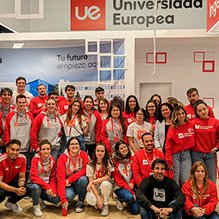
Come and see the campus
Get to know the facilities and discover why Universidad Europea is made for you.
Faculty
Our teaching staff
- Ana del Valle Corrales Paredes
Systems Engineering from the Universidad de los Andes, Venezuela. She has a Master's Degree in Robotics and Automation from the Carlos III University of Madrid, Spain, where she also received, in 2012, the title of Doctor in Industrial Automation Engineering. Dr. Corrales has been an assistant professor in the Department of Systems Engineering and Automation at the Carlos III University of Madrid. He has worked on several research projects related to mobile and social robots and RFID technologies. Currently, she is Adjunct Professor in the Department of Science, Computing and Technology of the European University of Madrid and Coordinator of the Degree in Computer Engineering. She is a Principal Investigator in the Smart Interactive Systems Group, her research focuses on the area of social robotics, human-robot interaction and human-avatar interaction. He has a special interest in user interfaces, design thinking, creativity and photography. - Carlos Moreno Martinez
Degree in Computer Science, PhD in Applied Information Technologies, certificate in ITIL® v3 and in ISO20000, professor of the Department of "Science, Computing and Technology".
Professional experience in companies in the software technology sector, national and international, until joining the European University of Madrid. He is an expert in IT management processes and portfolio.
Collaborator of start-ups and newly created companies for the design and strategy of their portfolio of products and services.
Founding member of the multidisciplinary research group SmartIS (Smart Interatvice Systems), at the School of Architecture, Engineering and Design (Universidad Europea, 2019), dedicated to the study of people's emotional response to technology, expanding the principles of HCI (human-computer interaction).
His areas of interest are business innovation arising at the university, and professional competencies and skills for the digital economy. - Pedro Jose Lara Bercial
Accredited Professor and University Holder with interests in Educational Innovation and ICT applied to teaching and the third sector and automatic software tests.
He teaches not only technical aspects such as software development and engineering, but also transversal skills for engineers.
He is currently deputy director of the School of Architecture, Engineering and Design of the European University with responsibility for undergraduate degrees in the area of Science, Computing and Technology, but has held other positions such as Department Director or Vice Rector.
During his time as Vice-Rector for Innovation and Educational Projects, he led a team of specialists in educational innovation with the mission of ensuring the correct development of the Academic Model of the European University, having as one of the fundamental axes the Teaching Innovation.
Finally, as an ICT professional, he accumulated experience in the design, development and management of technological and software development projects. - Nourdine Aliane Saadi
Industrial Engineer in the intensification of Automation by the Polytechnic School of Algiers and PhD in Physical Sciences by the Complutense University. Since 1996 he has been teaching and researching at the UEM. Accredited by the ACAP in 2008 in all figures and since 2010 he has the position of full professor at the polytechnic school. - Fernando Aparicio Galisteo
Bachelor of Physical Sciences, MBA, MSc. (Advanced Artificial Intelligence), PhD. (Multidisciplinary Engineering). Since 2010, professor in the Department of Computer Systems, Automation and Communications of the UEM (DSIAC), and researcher in the Research Group on Intelligent Systems (GSI). - Sergio Bemposta Rosende
Computer Engineer, specializing in Robotics and Artificial Vision. Professor of the Department of Computer Science, Automation and Communications. Business analytics in technology in the Area of Vice-Rectorate for Quality and Technological Innovation. - Guillermo Castilla Cebrián
PhD in Civil Engineering from the Polytechnic University of Madrid. Master's Degree in Civil Engineering Systems, specialized in Transport and Territory. Doctoral specialization in statistical transport systems applied to conventional Spanish roads. - Mª Cruz Gaya López
Professor specializing in Artificial Intelligence. Degree in Computer Science from the University of Granada. PhD in Multidisciplinary Engineering from the UEM (2011), thesis entitled "Distributed Synthesis of Theories" in the field of distributed machine learning and evolutionary algorithms. Accredited doctor of Private University.
20 years of teaching experience. Subjects taught in the field of databases, computer networks and programming.
20 years of research experience in the field of data mining and the application of PBL in engineering degrees. More than 20 publications 4 of them impact articles. Participation in more than 10 research projects.
10 years of management experience as Director of ICT area, academic director of the EU Business and Tech School with IBM, and, currently, deputy director for postgraduate studies of the STEAM school of the UEM. - Daniel Gómez Vergel
Degree in Physics from the University of Seville (2005) and PhD in Theoretical Physics from the Complutense University of Madrid (2009). His interest in different branches of physics has allowed him to hold research positions in areas of very diverse nature (atomic physics, characterization of materials, quantum gravity) in centers of recognized prestige during the last ten years. - Enrique Puertas Sanz
He is a Computer Engineer and PhD in Applied Information Technologies. Specialist in Artificial Intelligence and Big Data. Member of the "Intelligent Systems" research group, and co-director of the "Machine Learning Health-EU" group, focused on the development and application of Artificial Intelligence tools to clinical practice and health management. He is also the author of the "Practical Manual of Artificial Intelligence in Healthcare Environments".
As a researcher he has participated in more than twenty national and European research projects and contracts, and is the author of more than thirty publications in international journals and conferences on topics related to Big Data, Data Mining, and Artificial Intelligence. - Jose Manuel Lopez Lopez
PhD in Physics from the University of Granada (2006) in the program of Science and Technology of Colloids and Interfaces. He began his career as a university professor as Assistant Professor LOU in the Department of Condensed Matter Physics of the Autonomous University of Madrid (2006-2008). He is currently Adjunct Professor at the European University of Madrid, where he has assumed the teaching of basic subjects belonging to several degrees of the School of Architecture, Engineering and Design. His initial research activity focused on various aspects of nanoscale physics: from the modeling and simulation of population dynamics in particulate systems, to the characterization of two-dimensional metal networks at low temperature. In 2018 he joined the "Data Science Lab" research group of the European University of Madrid, of which he is currently Principal Investigator. There he applies his experience in mathematical modeling to the prediction of opinion through collaborative filtering and to the dynamic representation of information. - Juan Antonio Piñuela Izquierdo
PhD in Telecommunications Engineering from the Polytechnic University of Madrid. Specialized in subjects of signal processing, communications and software development. Highlight seven publications and eight contributions to conferences in the field of signal processing and especially images. Professional experience in management, pre-sales and analysis-programming tasks in different projects and companies involved in the development of multiplatform multimedia solutions or data management and analysis.
Excellence endorsed by the best
Frequently Asked Questions
How many years does it take to be a computer engineer?
If you study the Degree in Computer Engineering at Universidad Europea, it’ll take four years. During the programme, you will get a deep understanding of many areas, such as:
- intelligent systems,
- artificial intelligence,
- user interface
As part of the degree, you can also obtain the CISCO and AWS certifications.
Is a computer engineering degree good?
Yes, a computer engineering degree can be a good option for people interested in pursuing a career in technology. Computer engineering is a field that combines the principles of computer science and electrical engineering to design and develop computer systems and hardware.
Once they have completed their degree, graduates are highly sought after by a variety of industries, including software development, electronics manufacturing, telecommunications, and aerospace. The rapid growth and evolution of technology means that across the world there is a demand for skilled professionals in computer science.
Are computer engineers in demand?
Computer engineers are in high demand in many countries across the world because of the specific skills they offer. As we rely more and more on technology, companies and organisations of all sizes need professionals capable of designing and maintaining computer hardware and software systems.
On the Degree in Computer Engineering at Universidad Europea, you’ll not just learn the theory, but put into practice your knowledge via an academic model based on experiential learning, and completing internships and work placements, getting the skills needed ahead of launching your career in this growing sector.
What does a degree in computer engineering involve?
The Degree in Computer Engineering at Universidad Europea involves aspects of computer science and electrical engineering. Computer engineering is a branch of engineering that focuses on the design, development, and maintenance of computer systems and their components.
The following is just an example of some of what you’ll study on the degree:
- Programming
- Data structures and algorithms
- Computer architecture
- Operating systems:
- Computer networks
- Software engineering
Overall, the degree in computer engineering provides a broad range of knowledge and skills that can be applied to a variety of industries, including software development, hardware design, telecommunications, and robotics.

